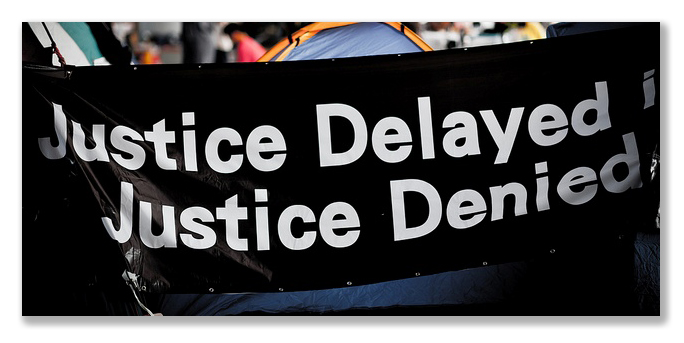We post news and comment on federal criminal justice issues, focused primarily on trial and post-conviction matters, legislative initiatives, and sentencing issues.

CAN I BE YOUR (NEXT) FRIEND?
Prisoner Walter Cardin prepared a post-conviction motion under 28 USC § 2255 motion attacking his white-collar fraud conviction, due on June 8th. But two days before the filing, the Bureau of Prisons hauled him from his prison to the hospital. Lucky for Walt, his sister Natalie had been helping him and had a copy of draft motion.
Natalie filed the motion, signing the draft “Walt Cardin by Natalie Cardin,” and declaring “under penalty of perjury” that she was “attorney in fact, P.P. for Walt Cardin” and that he was incarcerated and “otherwise unavailable to sign this motion and submit it in a timely manner.” On June 8, Walt was released from the hospital and returned to prison.
The district court sat on the motion for a few months, and then invited the government to argue that the motion was improper because of Natalie’s signature. The government obligingly responded, arguing the motion should be dismissed on the ground that Natalie lacked standing to file it as a “next friend” for her brother.
Walt responded by amending the § 2255 motion to add his signature, along with a statement from his case manager that he had been in the hospital at the time the § 2255 motion was filed and a copy of the power of attorney he had given Natalie months earlier, well before the June 8th submission.
 A full 21 months after the § 2255 motion was filed, the district court held that Natalie had failed “provide an adequate explanation” as to why Walt himself could not have filed the original § 2255 motion and to show that she was “truly dedicated” to Walt’s best interests when she filed it. The court threw out Walt’s post-conviction motion without considering the § 2255 pleading on its merits at all.
A full 21 months after the § 2255 motion was filed, the district court held that Natalie had failed “provide an adequate explanation” as to why Walt himself could not have filed the original § 2255 motion and to show that she was “truly dedicated” to Walt’s best interests when she filed it. The court threw out Walt’s post-conviction motion without considering the § 2255 pleading on its merits at all.
Last week, the 6th Circuit reversed. The Circuit observed that the “next friend” doctrine determines when a collateral motion brought by a person who does not have standing to pursue the motion should be deemed brought by a person who does. A “next friend” does not himself become a party to the habeas corpus action in which he participates, but simply pursues the cause on behalf of the detained person.
There are two requirements to be a “next friend:” First, the filer must provide an adequate explanation — such as inaccessibility, mental incompetence, or other disability — why the person he or she is filing for (called the real party in interest) cannot bring the motion himself. Second, the “next friend” must be truly dedicated to the best interests of the person on whose behalf he seeks to file.
The district court rejected Walt’s explanations in his amendment, holding that it was up to Natalie – not Walt – to show that she qualified as a “next friend.” The 6th Circuit said that was wrong: “That the putative next friend bears the burden of proving her status does not mean that the prisoner’s own views, when he can express them, are beside the point. To the contrary, courts routinely consider the prisoner’s statements in determining whether a putative next friend is an actual one.”
 The district court also thought Walt’s explanation was inadequate because he should have filed the motion earlier in the one-year limitations period for such motions specified in 28 USC § 2255(f)(1). “But that reasoning would shorten from 365 days to 362 the limitations period specified by Congress,” the 6th Circuit said. “The reality is that a great deal of legal work typically gets done in the 72 hours before a filing deadline. The courts should not impose on litigants (much less pro se ones) standards of diligence that nobody meets in practice.”
The district court also thought Walt’s explanation was inadequate because he should have filed the motion earlier in the one-year limitations period for such motions specified in 28 USC § 2255(f)(1). “But that reasoning would shorten from 365 days to 362 the limitations period specified by Congress,” the 6th Circuit said. “The reality is that a great deal of legal work typically gets done in the 72 hours before a filing deadline. The courts should not impose on litigants (much less pro se ones) standards of diligence that nobody meets in practice.”
Practically speaking, the decision – which sent the § 2255 motion back to district court for a ruling on its merits – will have little impact on Walt. He has served his sentence, having been released 11 months ago. And so grind the wheels of justice…
Cardin v. United States, 2020 U.S. App. LEXIS 617 (6th Cir. Jan. 9, 2020)
– Thomas L. Root


